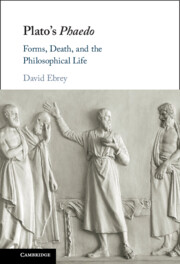2 results
7 - The Return to the Defense
-
- Book:
- Plato's <I>Phaedo</I>
- Published online:
- 02 February 2023
- Print publication:
- 09 February 2023, pp 162-183
-
- Chapter
- Export citation

Plato's Phaedo
- Forms, Death, and the Philosophical Life
-
- Published online:
- 02 February 2023
- Print publication:
- 09 February 2023

